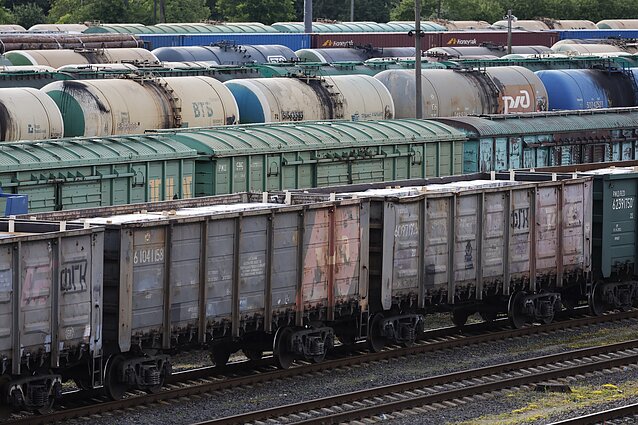
There is no blockade, as Russian propaganda claims
The hot political issue of the day in Lithuania is the transport of goods from Russia through Lithuania to the Russian exclave of Kaliningrad. The transit of some Russian goods to Kaliningrad was halted after the EU sanctions, imposed over Moscow’s invasion of Ukraine, came into force. Representatives of Lithuania and the European Commission have held consultations in recent weeks on the transit of sanctioned goods to Kaliningrad following Russia’s outrage over the restrictions on steel that came into force in June. Representatives of Lithuania and the European Commission have held consultations in recent weeks on the transit of sanctioned goods to Kaliningrad following Russia’s outrage over the restrictions on steel that came into force in June.
Over 550,000 tons of goods, now subjected to new sanctions, were transported between Kaliningrad and the Russian mainland in the first half of 2022. A ban on the transit of Russian-origin cement, alcohol, wood, glass and a number of other goods via Lithuania came into force on July 10. A ban on the transit of coal and other solid fossil fuels is set to enter into force on August 10, followed by a ban on Russian oil and its products from December 5.
On July 13, the European Commission issued new guidelines allowing Russia to transport sanctioned goods by rail to and from Kaliningrad via EU territory, but only for the needs of the exclave. That day, the United States Department of State welcomed the European Commission’s clarification allowing the transit of sanctioned goods to and from Russia’s exclave of Kaliningrad. “We welcome the announcement by the EU making clear how its member states will implement economic sanctions on Russia with respect to Kaliningrad,” said spokesperson Ned Price.
“We applaud European Union member states, including Lithuania, for enforcing sanctions measures fully in accordance with EU guidance”. The State Department also stressed that “there is not now and there never has been a so-called ‘blockade’ of Kaliningrad”, since people continue to transit between mainland Russia and Kaliningrad, as do all humanitarian shipments and most other goods.
Lithuanian Railways (LTG) spokesperson Kotryna Dzinkaraitė explained that only 15 percent of all goods transiting Lithuania to Russia’s exclave of Kaliningrad are affected by sanctions. “Out of this volume, ferrous metals comprised up to 9 percent of the total transit cargo traffic between mainland Russia and Kaliningrad, cement accounted for 3 percent, alcohol products – 1.4 percent, and timber products – 0.6 percent.”





























